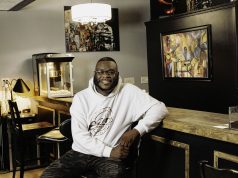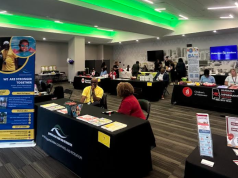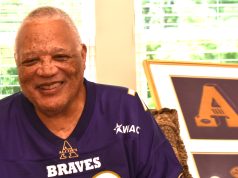By Ryan Michaels
The Birmingham Times
Scott Douglas, executive director of Greater Birmingham Ministries (GBM), on Wednesday said a proposed bill currently pending in the Alabama Legislature that may make it a felony to help someone fill out an absentee ballot “penalizes participatory democracy.”
HB209, first introduced in March, would make it a Class C felony for people to distribute, order, request, collect, complete, obtain or deliver an absentee ballot or application on behalf of another person, with a few exceptions. It would also make it a Class B felony to pay a third party to assist.
The bill is sponsored by Rep. Jamie Kiel, R-Russellville and passed out of the House elections committee in April with a vote of 9-3.
“[The bill] criminalizes community, and it nullifies neighbor helping neighbor, in practice, the sacred rite of being able to vote for whom they choose,” said Douglas, who was joined by representatives from several community groups.
Douglas added, “Voter suppression in Alabama has a history as long as before Blacks had the Voting Rights Act of 1965, and even during Reconstruction, vote suppression was prevalent. It has been an ongoing issue in our state…”
Cara McClure, founder of civic engagement group Faith & Works, said the bill likely violates a section of the Voting Rights Act (VRA), as well as the Americans with Disabilities Act (ADA), and undermines “the fundamental principle” of democracy.
“It is our belief that every citizen, regardless of their physical ability…has the inherent right to participate in the democratic process without undue burden or interference. This bill…violates the VRA and the ADA, both of which are pivotal in assuring that every American citizen has the opportunity to express their will at the ballot box,” McClure said.
She added that the bill “would criminalize civic organizations…and individuals who are merely attempting to help their neighbors, their cousins, their church members, exercise their right to vote via absentee ballot.”
The implications for such a law, if passed, would be “deeply concerning,” McClure said.
“This bill could set a dangerous precedent, as it appears to target civic organizations and well-meaning individuals who are simply trying to support their neighbors, friends and loved ones in exercising their vote,” McClure said.
Gabriel Cabán Cubero, campaign director for People’s Budget Birmingham, said organizations like his are “trusted messengers” in the communities they serve, and HB209 “targets all of us and our constituents.”
“These are organizations who depend on voter access and voter mobilization to serve our people. But under HB 209, helping our community, our people, would be a felony. We would be punished, criminalized and potentially incarcerated,” Cubero said.
Ana Delia Espino, executive director of the Alabama Coalition for Immigrant Justice, said southern states like Alabama are welcoming but HB 209 “would make helping your friend, your neighbor out, a felony.”





